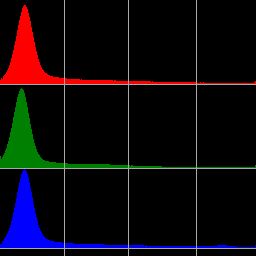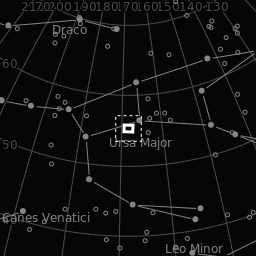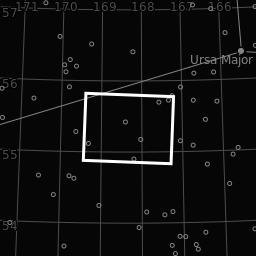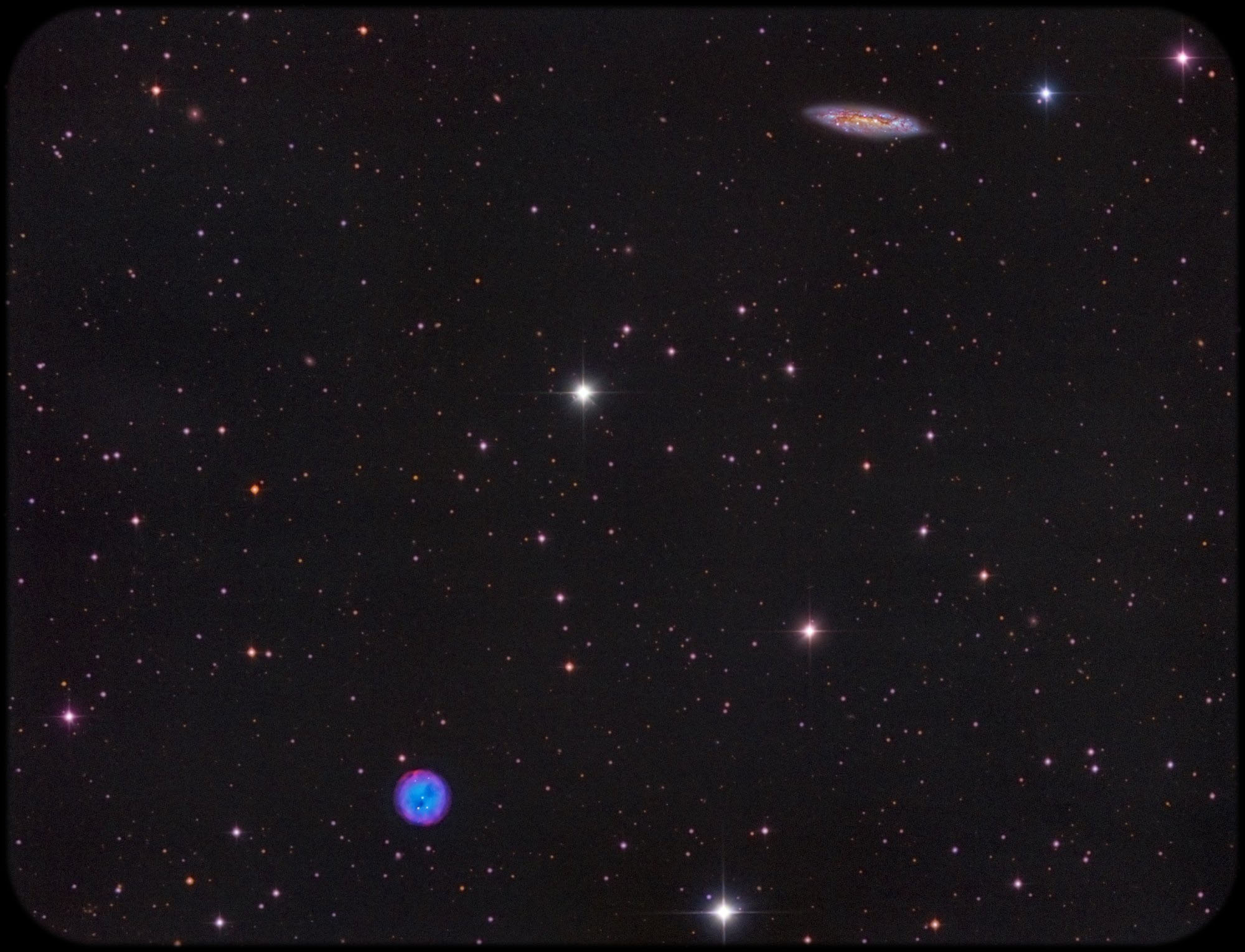In the field are visible two Messier objects:
In the bottom left, The Owl Nebula (also known as Messier 97 or NGC 3587) is a planetary nebula located approximately 2,030 light years away in the constellation Ursa Major. It was discovered by French astronomer Pierre Méchain on February 16, 1781. When William Parsons, 3rd Earl of Rosse, observed the nebula in 1848, his hand-drawn illustration resembled an owl's head. It has been known as the Owl Nebula ever since.
The nebula is approximately 8,000 years old. It is approximately circular in cross-section with a little visible internal structure. It was formed from the outflow of material from the stellar wind of the central star as it evolved along the asymptotic giant branch. The nebula is arranged in three concentric shells, with the outermost shell being about 20–30% larger than the inner shell. The owl-like appearance of the nebula is the result of an inner shell that is not circularly symmetric, but instead forms a barrel-like structure aligned at an angle of 45° to the line of sight.
In the top right, Messier 108 (also known as NGC 3556) is a barred spiral galaxy in the constellation Ursa Major. It was discovered by Pierre Méchain in 1781 or 1782. From the perspective of the Earth, this galaxy is seen almost edge-on.
This galaxy is an isolated member of the Ursa Major Cluster of galaxies in the Virgo supercluster. It has a morphological classification of type SBbc in the de Vaucouleurs system, which means it is a barred spiral galaxy with somewhat loosely wound arms. [Wiki] |
|
|
| Optic |
SW Quattro 8S 200mm f/4 with Baader MPCC Mark III corrector |
| Camera |
Atik 383L+ |
| Filters |
Baader L, R, G, B 36mm |
| Mount |
NEQ6 with EQASCOM
|
Guide
|
SW 70/500 with AlCCD5
|
Frame center
|
RA 11:13:19 DEC 55:19:52 J2000
|
Date
|
25th March
|
Site
|
Astrobioparco di Felizzano, AL, Italy
|
| Exposures
|
L - 18x600s bin 1x1 @-10C
R - 9x600s bin 1x1 @-10C
G - 6x600s bin 1x1 @-10C
B - 9x600s bin 1x1 @-10C
Integration time - 7h
|
|



|
|



